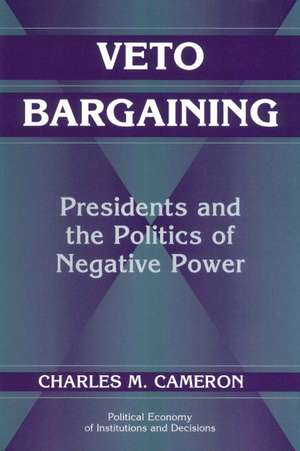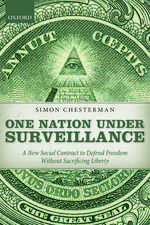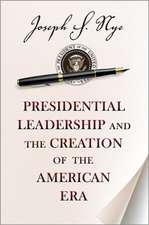Veto Bargaining: Presidents and the Politics of Negative Power: Political Economy of Institutions and Decisions
Autor Charles M. Cameronen Limba Engleză Paperback – 18 iun 2000
Din seria Political Economy of Institutions and Decisions
-
 Preț: 235.99 lei
Preț: 235.99 lei -
 Preț: 231.82 lei
Preț: 231.82 lei -
 Preț: 177.53 lei
Preț: 177.53 lei -
 Preț: 211.85 lei
Preț: 211.85 lei -
 Preț: 200.87 lei
Preț: 200.87 lei -
 Preț: 306.68 lei
Preț: 306.68 lei -
 Preț: 208.16 lei
Preț: 208.16 lei -
 Preț: 133.60 lei
Preț: 133.60 lei -
 Preț: 295.55 lei
Preț: 295.55 lei -
 Preț: 236.43 lei
Preț: 236.43 lei -
 Preț: 228.38 lei
Preț: 228.38 lei -
 Preț: 265.11 lei
Preț: 265.11 lei -
 Preț: 281.49 lei
Preț: 281.49 lei -
 Preț: 285.37 lei
Preț: 285.37 lei -
 Preț: 279.98 lei
Preț: 279.98 lei - 14%
 Preț: 773.75 lei
Preț: 773.75 lei -
 Preț: 233.38 lei
Preț: 233.38 lei -
 Preț: 247.41 lei
Preț: 247.41 lei -
 Preț: 203.12 lei
Preț: 203.12 lei -
 Preț: 230.33 lei
Preț: 230.33 lei -
 Preț: 286.69 lei
Preț: 286.69 lei - 14%
 Preț: 790.57 lei
Preț: 790.57 lei -
 Preț: 265.32 lei
Preț: 265.32 lei - 11%
 Preț: 554.15 lei
Preț: 554.15 lei -
 Preț: 287.07 lei
Preț: 287.07 lei - 11%
 Preț: 700.20 lei
Preț: 700.20 lei -
 Preț: 273.13 lei
Preț: 273.13 lei -
 Preț: 459.84 lei
Preț: 459.84 lei -
 Preț: 280.35 lei
Preț: 280.35 lei -
 Preț: 260.11 lei
Preț: 260.11 lei - 11%
 Preț: 640.30 lei
Preț: 640.30 lei -
 Preț: 286.89 lei
Preț: 286.89 lei -
 Preț: 247.80 lei
Preț: 247.80 lei - 11%
 Preț: 691.81 lei
Preț: 691.81 lei -
 Preț: 287.48 lei
Preț: 287.48 lei - 11%
 Preț: 641.80 lei
Preț: 641.80 lei - 11%
 Preț: 635.32 lei
Preț: 635.32 lei -
 Preț: 271.01 lei
Preț: 271.01 lei -
 Preț: 265.70 lei
Preț: 265.70 lei -
 Preț: 227.83 lei
Preț: 227.83 lei
Preț: 252.21 lei
Nou
Puncte Express: 378
Preț estimativ în valută:
48.27€ • 50.20$ • 39.85£
48.27€ • 50.20$ • 39.85£
Carte tipărită la comandă
Livrare economică 15-29 aprilie
Preluare comenzi: 021 569.72.76
Specificații
ISBN-13: 9780521625500
ISBN-10: 0521625505
Pagini: 312
Ilustrații: 47 b/w illus. 26 tables
Dimensiuni: 152 x 229 x 18 mm
Greutate: 0.48 kg
Editura: Cambridge University Press
Colecția Cambridge University Press
Seria Political Economy of Institutions and Decisions
Locul publicării:New York, United States
ISBN-10: 0521625505
Pagini: 312
Ilustrații: 47 b/w illus. 26 tables
Dimensiuni: 152 x 229 x 18 mm
Greutate: 0.48 kg
Editura: Cambridge University Press
Colecția Cambridge University Press
Seria Political Economy of Institutions and Decisions
Locul publicării:New York, United States
Cuprins
1. Divided government and interbranch bargaining; 2. A natural history of veto bargaining, 1945–1992; 3. Rational choice and the presidency; 4. Models of veto bargaining; 5. Explaining the patterns; 6. Testing the models; 7. Veto threats; 8. Interpreting history; 9. Conclusions.
Recenzii
'Cameron's is at once the most extensive theoretical and empirical study of vetoes in the US federal system ever undertaken. The range of predictions generated from a quite spare and economical family of models is truly impressive, as are the author's ingenuity and persistence in testing them. This will be a landmark, not just in the study of veto bargaining in the United States, but also in the study of vetoes in other separation-of-powers systems and in the study of executive-legislative relations more broadly conceived.' Gary Cox, University of California at San Diego
'Using as his vantage point an unquestionable terrain of strategic engagement in executive-legislative relations - the presidential veto - and displaying historical sensitivity, institutional savvy, and just plain good analytical sense, Charles Cameron shows how much formal modeling matched with empirical sophistication can contribute to our understanding of modern chief executives in the legislative context.' Mark A. Peterson, UCLA School of Public Policy and Social Research
'Veto Bargaining is the best book on the presidency since Neustadt's Presidential Power. Cameron's systematic theoretical and empirical approach represents nothing less than a new way to study the presidency.' Barry Weingast, Stanford University
'Using as his vantage point an unquestionable terrain of strategic engagement in executive-legislative relations - the presidential veto - and displaying historical sensitivity, institutional savvy, and just plain good analytical sense, Charles Cameron shows how much formal modeling matched with empirical sophistication can contribute to our understanding of modern chief executives in the legislative context.' Mark A. Peterson, UCLA School of Public Policy and Social Research
'Veto Bargaining is the best book on the presidency since Neustadt's Presidential Power. Cameron's systematic theoretical and empirical approach represents nothing less than a new way to study the presidency.' Barry Weingast, Stanford University
Descriere
Combining game theory with unprecedented data, this book analyzes how divided party Presidents use threats and vetoes to wrest policy concessions from a hostile congress.














